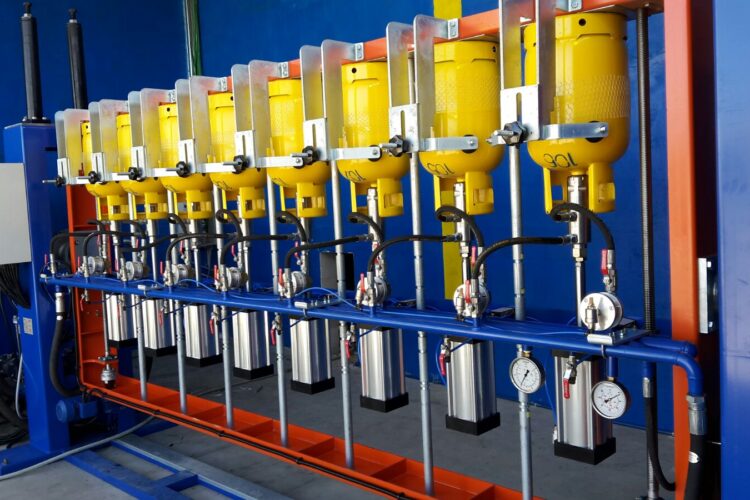
With the rapid increase in the usage of LPG cylinder, many LPG gas agency West Bengal is considering hydrostatic testing for quality check. As per Indian Standard IS 3196, part1, there are several tests mentioned in IS 3196, which every organization needs to be conducted on LPG cylinders before introducing them to the market.
Among all these tests, the hydro-test is one of the major tests which must be conducted on the LPG cylinder to acquire a safety certificate from the Bureau of Indian Certification.
Well, to understand its need, firstly you have to go through the definition and the process of Hydro-testing.
A 3span style=” color: #000000;”>hydrostatic test is a process in which high-pressure vessels such as LPG cylinders are tested to check their strength and leaks. A gas agency generally conducts hydrostatic testing at its bottling plant. In this, the cylinder is filled with water by removing the air in the cylinder and putting pressure higher than the cylinder’s pressure limit.
In this, 1.5 times more pressure is applied than the design pressure limits. In this, the pressure is held for a specific period to analyze any leaks in the cylinder. To enhance the visual testing process fluorescent dyes are added to the liquid to determine the cracks and leaks.
You May Like: 10 Best Ways To Save LPG Gas While Cooking
There are three methods that most gas agencies in West Bengal applies in the refilling or bottling centers. The three common methods are; Jacket method, the direct expansion method, and the proof testing method. Let’s understand each, one by one!
A cylinder is filled with water and then loaded into a sealed chamber which is also filled with water. The cylinder is then pressurized inside the chamber, also known as the test jacket for about a specific time. It results in expansion of the vessel, which releases water inside the glass tube, in which total pressure expansion is measured.
Once the pressure is released the deflation of the vessel happens and it shrinks back to almost its original shape.
The cylinder does return to its original dimensions. It is called permanent expansion. Whether it is eligible for the service depends on the difference between permanent expansion and total expansion. The probability of decommissioning is higher when the expansion rate is high.
In this process, the water is filled into the cylinder directly by pressuring the system. The cylinder expands by water pressure. Once the pressure is released the total expansion and permanent expansion are determined. It is determined through the total water pressure inside the vessel, the test pressure, and the amount of water expelled from the vessel.
In this pressure is applied and measured from the inside. It helps in determining any possible leaks due to the thinning of the cylinder’s wall. It does not require measuring of permanent and total expansion percentage of the cylinder.
The cylinders are taken for hydrostatic testing every 5 years, and for a new cylinder, it is 10 years. The due date of testing is marked on the cylinder after the test. It is crucial to take into account the fluid’s properties when performing a hydrostatic test.
SHIVGAS is a leading private gas company in Kolkata, it is known for its high-quality cylinder and quality of gas. We conduct thorough testing in bottling plants and ensure the cylinder in the market is safe to use.
Comment (0)